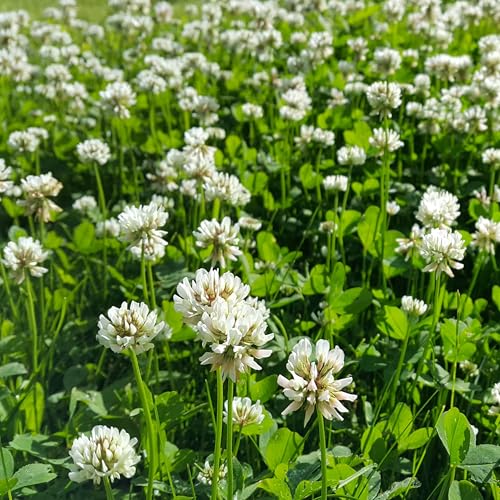Should you get rid of clover in lawns? Not necessarily, say lawn experts
Lawn experts weigh in on the pros and cons of keeping clover in your lawn

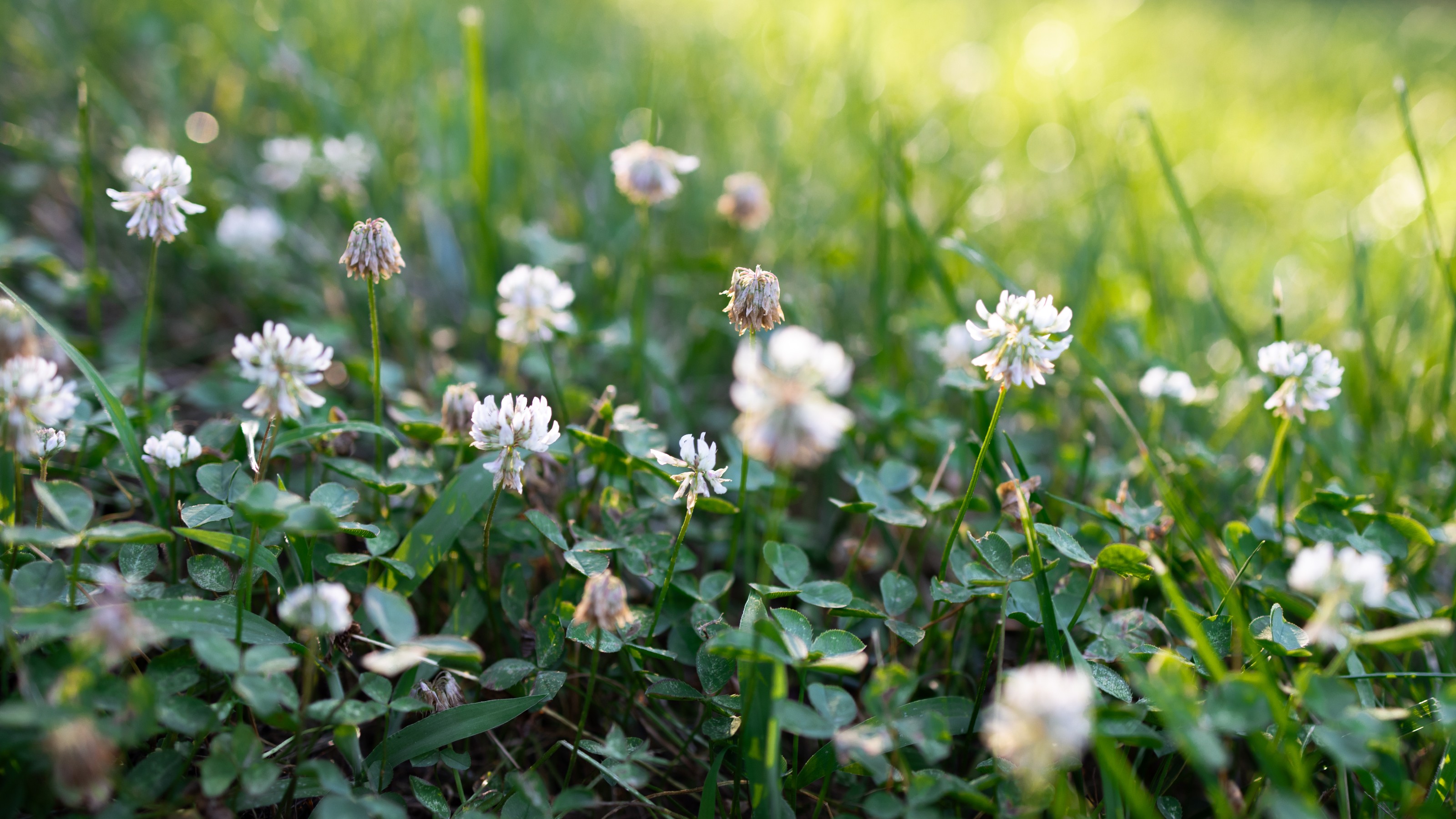
Sign up to our newsletter for style inspiration, real homes, project and garden advice and shopping know-how
You are now subscribed
Your newsletter sign-up was successful
When it comes to clover, the jury is out – while some people enjoy the sight of this plant on their grass, others are keen to wipe it out. But should you get rid of clover in lawns?
While your best garden ideas might not involve this creeping perennial, it's important to consider the benefits of clover before you jump headfirst into eradication measures. Clover makes a great low-maintenance lawn alternative to grass, for example.
We asked lawn experts for their verdict, with tips for how to get rid of clover in lawns if you decide it doesn't line up with your lawn ideas.
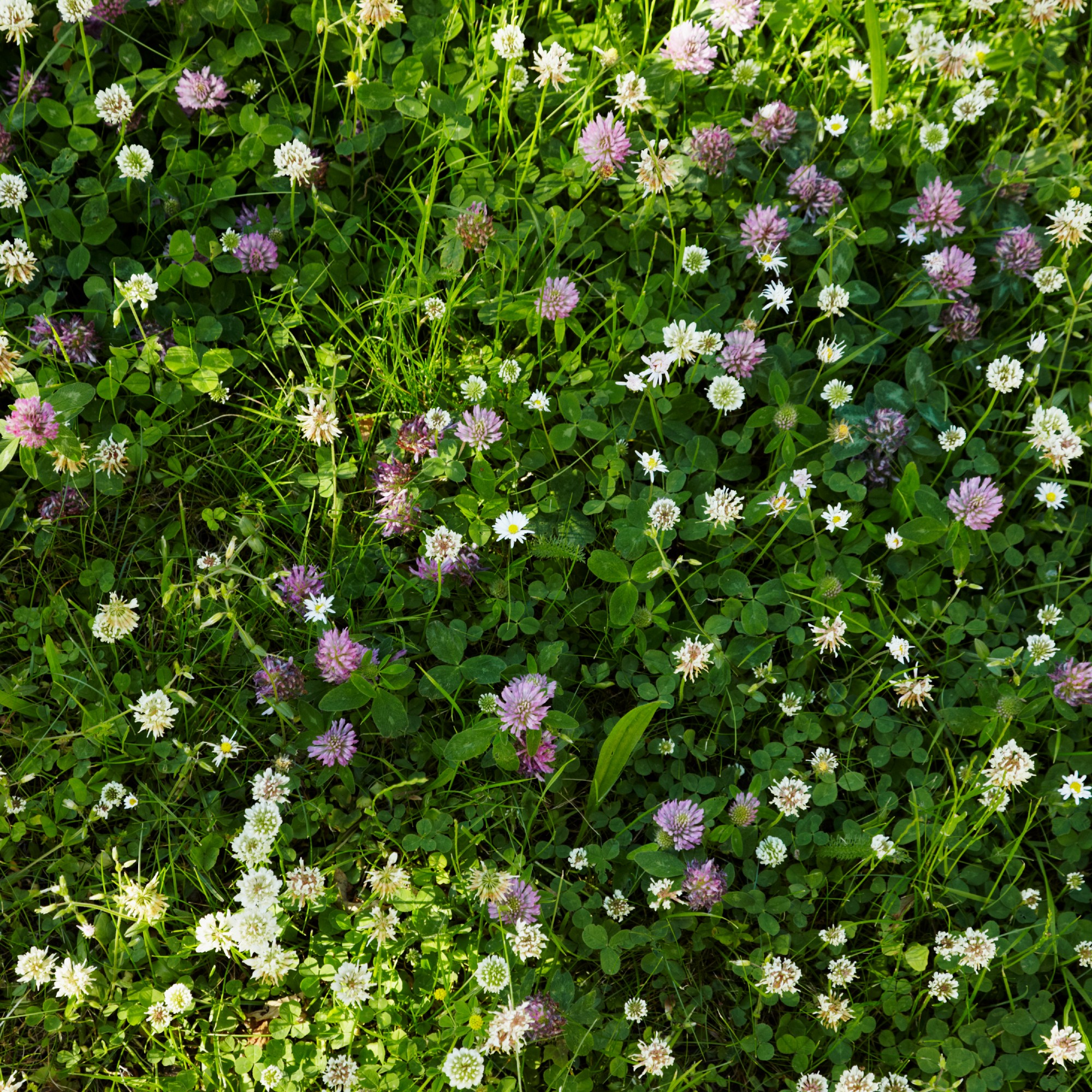
For those going for a manicured look, clover might manifest as a nuisance on the lawn – it can put paid to plain expanses of grass, which is less than ideal if you prefer your garden to look tidy.
'If you want a perfectly uniform green carpet, clover might not be ideal,' says Cheryl Harper, Managing Director of Greensleeves Lawn Care. 'Some clover varieties, like white clover, can spread aggressively through stolons and seeds. This can be problematic if you want to maintain clear boundaries between your lawn and flower beds.
'Clover thrives in areas where grass struggles, such as compacted soil or low nitrogen levels. In neglected or patchy lawns with thin grass cover, clover can readily spread and take over bare patches.'
Many weeds can take over a garden in this way, so if you're wondering whether you should get rid of creeping buttercup or other less favourable plants, chances are your grass is struggling.
Sign up to our newsletter for style inspiration, real homes, project and garden advice and shopping know-how

Cheryl Harper is the managing director of Greensleeves Lawn Care.
Established in 1998, Greensleeves Lawn Care is a UK-wide lawn care business with over 100 locations.
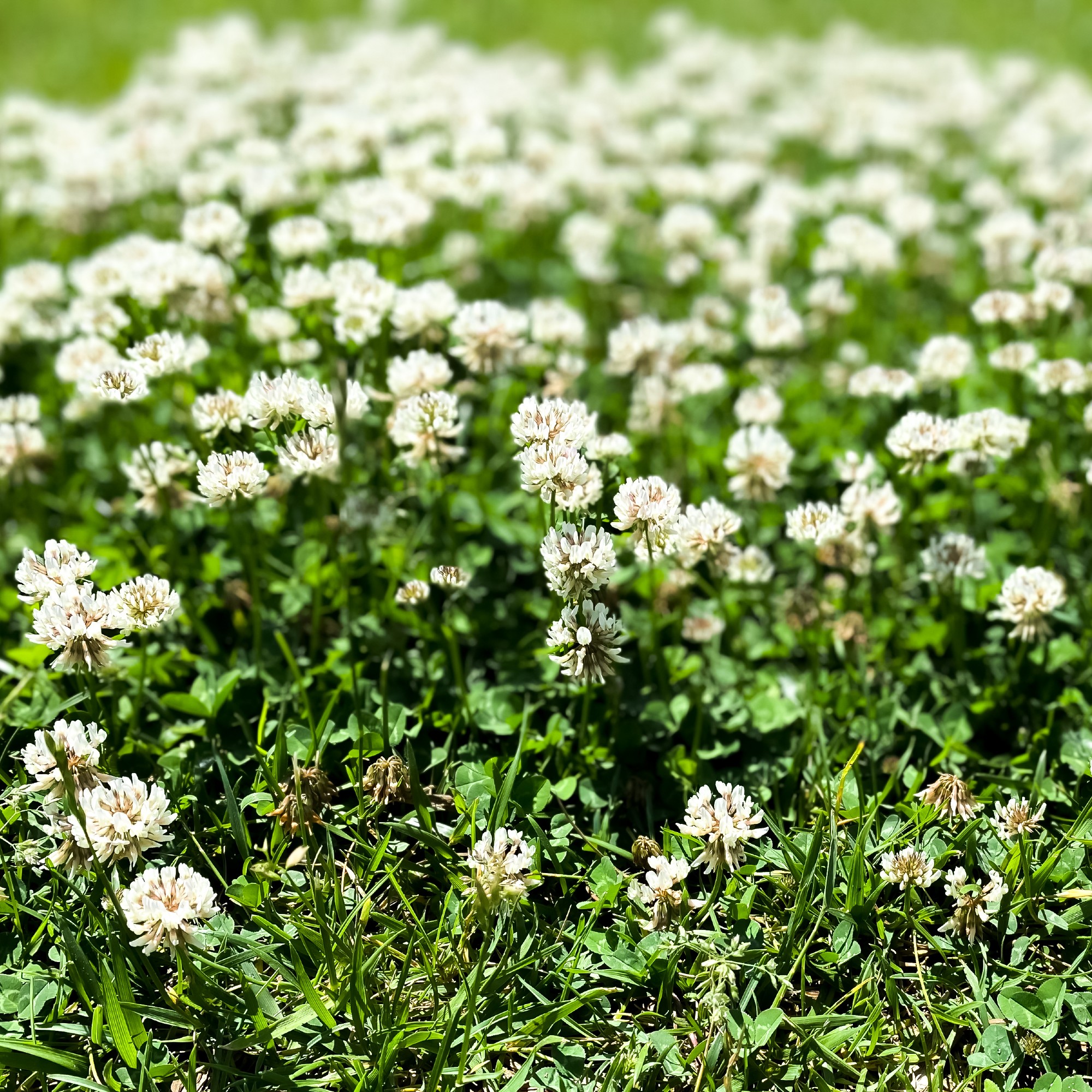
However, clover is increasingly being kept in lawns for its various wildlife benefits.
'If you would like to take a more eco-friendly approach to the look and feel of your lawn, keeping or even adding clover is a great way to do this,' says Chris McIlroy from The Grass People.

Chris is the technical product lead and in-house lawn seed expert for The Grass People, a grass seed company that champion their expert lead advice and high-quality seed. His advice is focused on sowing, mowing, and maintaining a perfect lawn, and how to overcome any lawn issues homeowners face.
Benefits of clover in lawns
If catering for wildlife is your number one priority in the garden, clover might be a good plant to have on side.
The delicate white clover flowers serve as a haven for bees, butterflies, and other pollinators. By sowing a clover lawn, you’re contributing to your garden’s aesthetics, supporting local ecosystems, and aiding biodiversity.
According to Chris, clover can also lend neighbouring plants a helping hand: 'Clover is a legume plant, which means it has the unique ability to fix nitrogen from the air and convert it into a usable form for itself and neighbouring plants. This natural nitrogen fixation reduces the need for fertilisers, promoting a natural way to achieve healthier soil and lessening environmental impact.'
Plus, it's an eco-friendly choice. 'Opting for a clover lawn showcases your commitment to sustainable landscaping. Reduced water usage and a smaller carbon footprint make clover lawns a smart choice for environmentally conscious homeowners.'
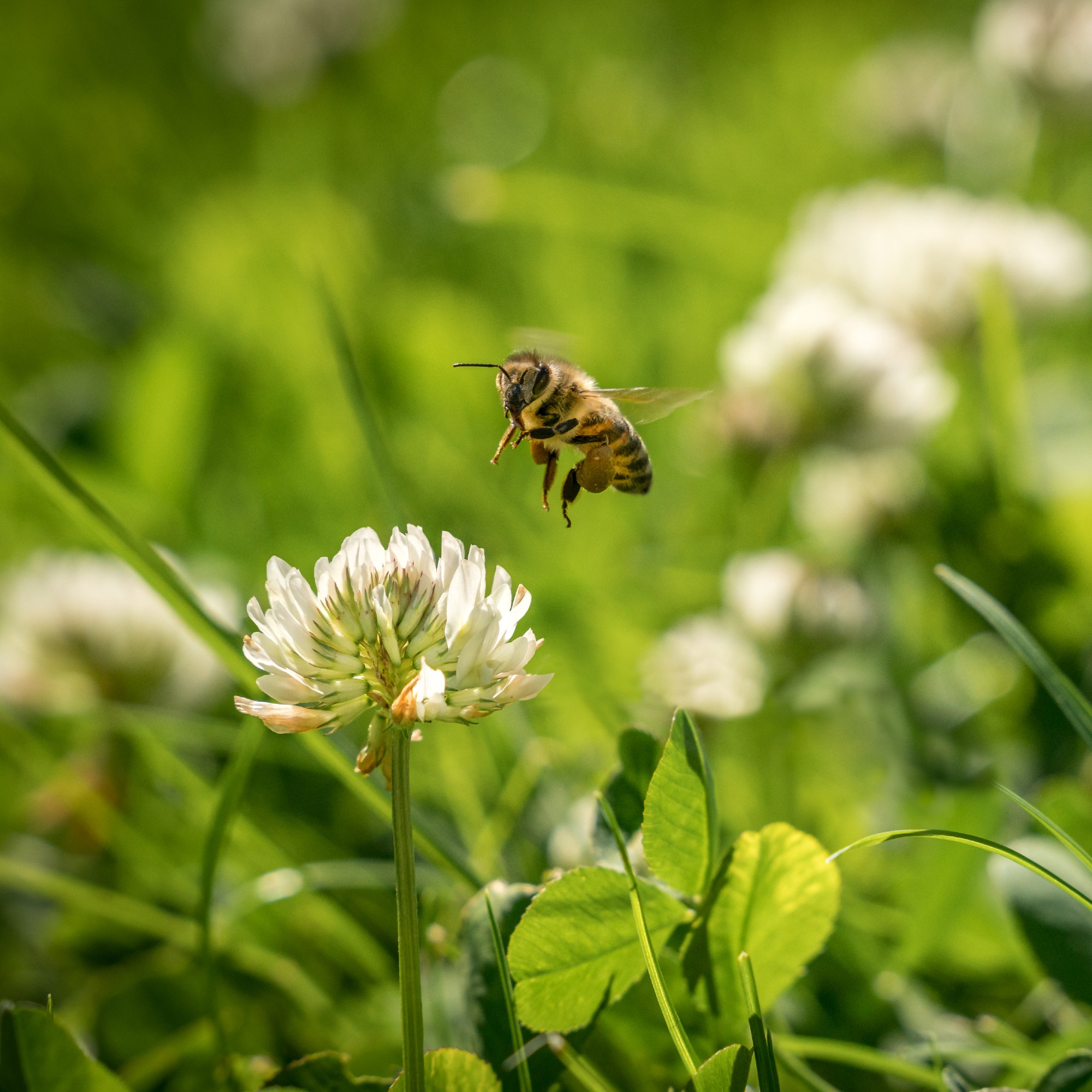
If you simply prefer a sweeping green lawn, that's okay, too – and there are steps you can take to phase it out of your garden.
How to get rid of clover in lawns
If you're wondering how to get rid of clover in lawns, you don't need to turn to herbicides straight away. Instead, focusing on your lawn's health might be key to beating the spread.
'The good news is that a healthy lawn with thick, established grass naturally outcompetes clover for resources,' says Cheryl from Greensleeves. 'This means that focusing on improving your lawn's overall health can often be the most effective way to manage clover, if you choose to do so.'
'Compacted soil and a thick thatch layer hinder grass growth, giving clover an advantage,' Cheryl explains. 'Aeration improves air and water flow to the roots, while dethatching removes the thatch layer, promoting healthy grass establishment.'
If you're wondering how to dethatch a lawn, it's worth learning to offer your lawn the best chance of success.
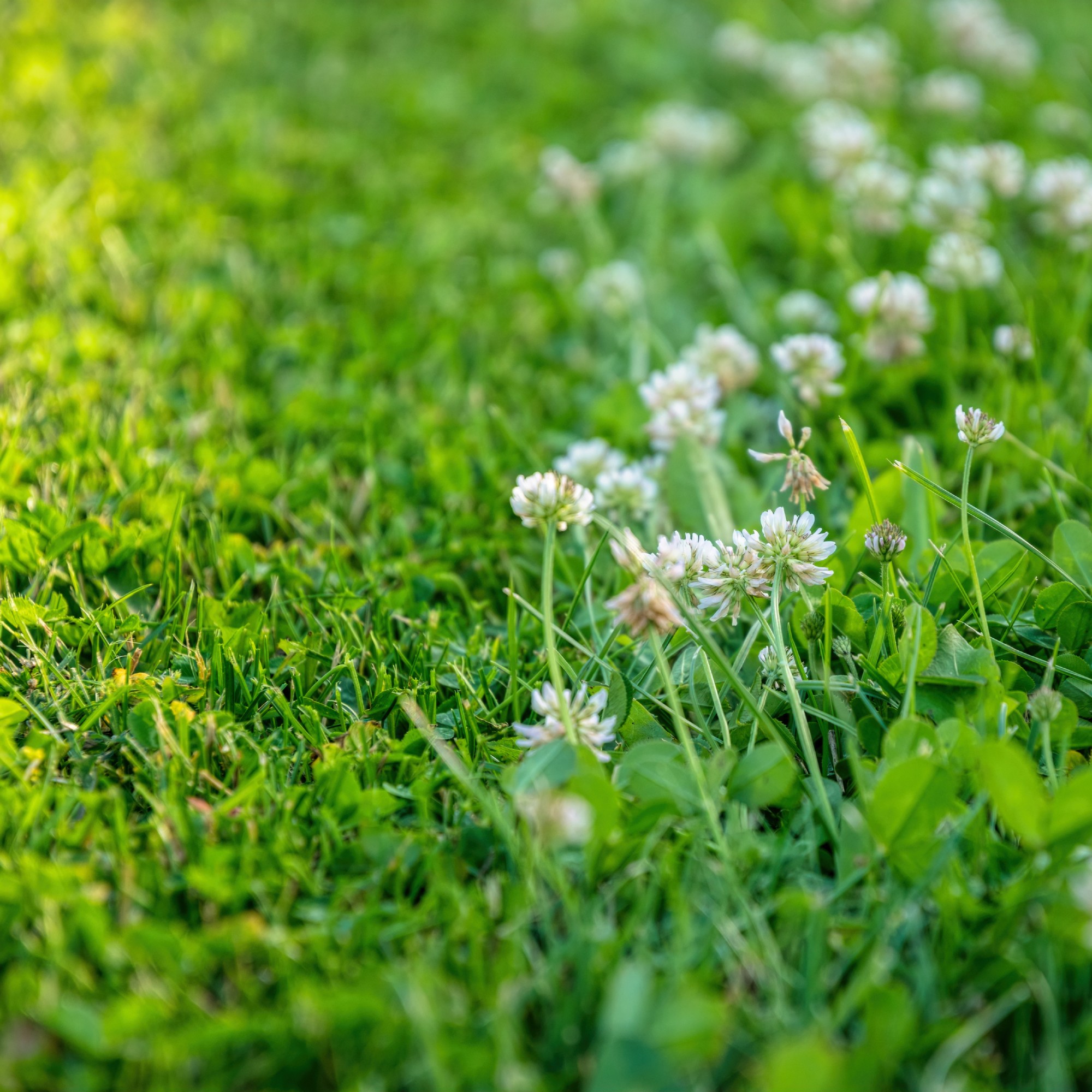
But what exactly is lawn aeration?
'Think of aeration as your lawn's ability to breathe, breaking up compacted soil that blocks air, water, and nutrients,' explains Cheryl. 'By punching little holes in the turf, aeration makes sure your grass gets all the good stuff it needs from below the surface.
'This isn't just a one-off treat; making aeration a regular part of your lawn care routine is key to maintaining its health and vibrancy. So, if you're aiming for a lawn that's not just surviving but thriving, remember to give it some room to breathe with aeration.'
What about mowing your lawn to get rid of clover?
'Cutting your lawn regularly at the correct height will encourage healthier growth from root to tip. Clover tends not to grow as tall as grass, but don’t be tempted to mow shorter in an attempt to remove it. You put more strain on your grass and the clover will take over any bare patches that develop.'
If the clover is in a smaller area of your lawn, it can be easier to remove, says Cheryl: 'For small clover patches, you can carefully hand-pull the plants, ensuring you remove the entire root system. Persistence is key to preventing regrowth.
'If you don’t have the time or experience to look after your lawn this summer, you can always rely on the services of a professional lawn care company such as Greensleeves Lawn Care.'
Healthy lawn essentials
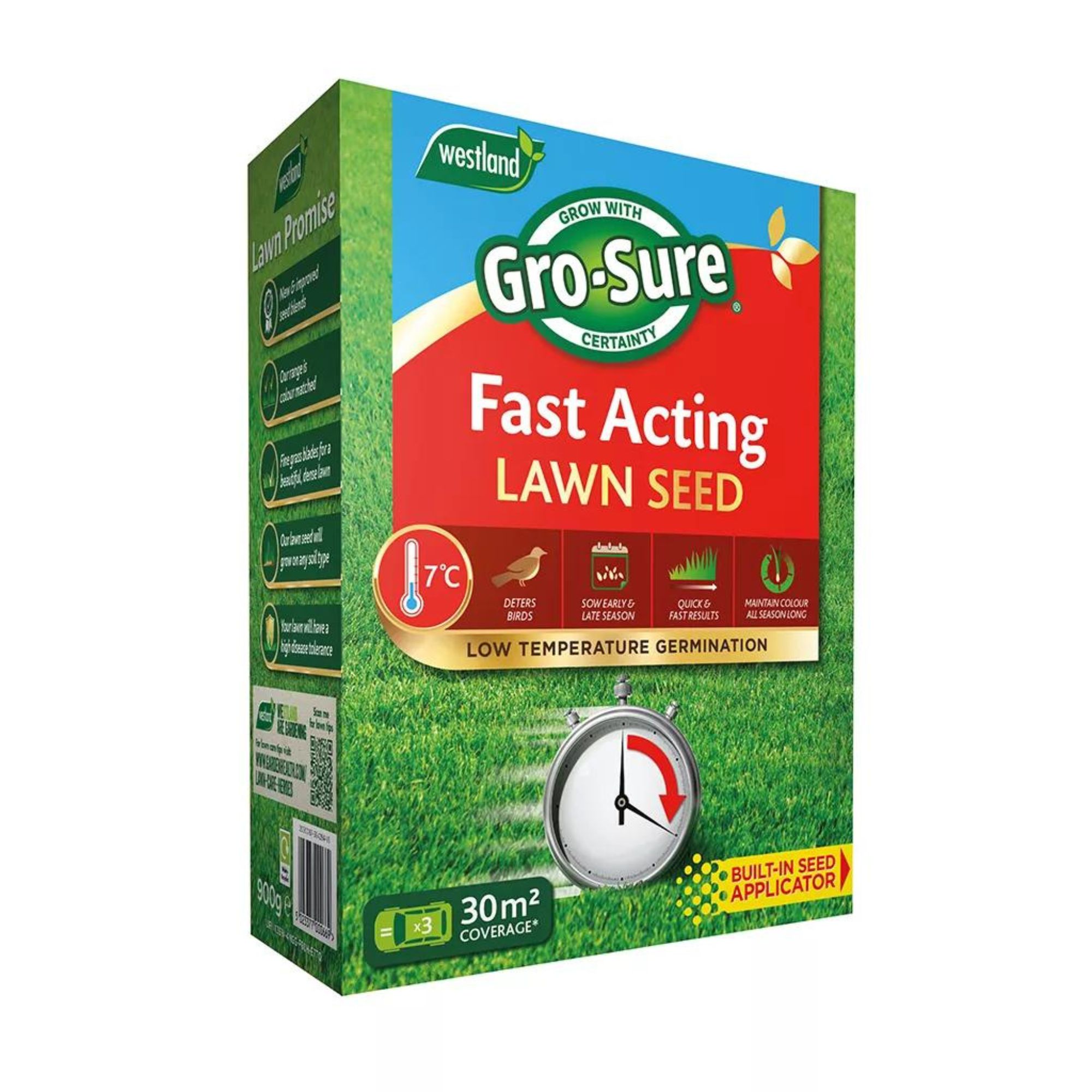

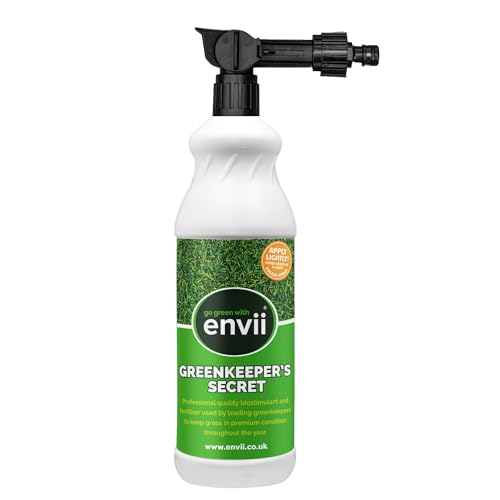
FAQs
Will clover take over a lawn?
'If clover is left to grow wild and not managed properly, then it can soon take over and cover your lawn,' says Steve Taylor, technical expert at GreenThumb.
'There are a few different types of clover to look out for. Some are larger, some are smaller, and there's even red clover. No matter the type, they can all present challenges to your lawn’s health.'
How do you kill clover naturally without killing grass?
According to lawn experts, prevention is better than cure when it comes to managing clover in lawns.
'The best way to manage clover is to prevent it from becoming a problem in the first place,' says Cheryl from Greensleeves. 'Focus on creating a healthy, dense lawn that naturally outcompetes clover for resources. Don’t mow too short and harm the health of your grass – think little and often with your summer mowing.'
So, whether or not you should get rid of clover in your lawn is up to you – there are pros and cons to keeping it, so whatever you decide, focus on making your lawn as healthy as possible.

Sophie joined the Ideal Home team as Gardens Editor in June 2024. After studying English at Royal Holloway, University of London, she began writing for Grow Your Own, which spurred on her love of gardening. She's tried growing almost every vegetable under the sun, and has a soft spot for roses and dinnerplate dahlias.
As Gardens Editor, Sophie's always on the lookout for the latest garden trend. She loves sharing growing hacks for every space, from herbaceous borders to balconies.
